The Deities of Westeros: Exploring Game of Thrones' Divine
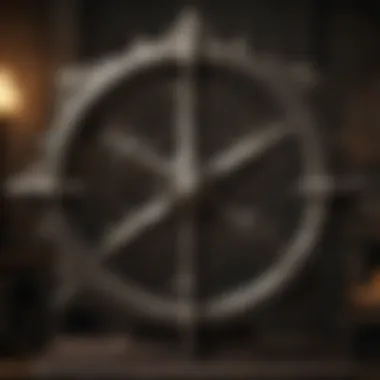
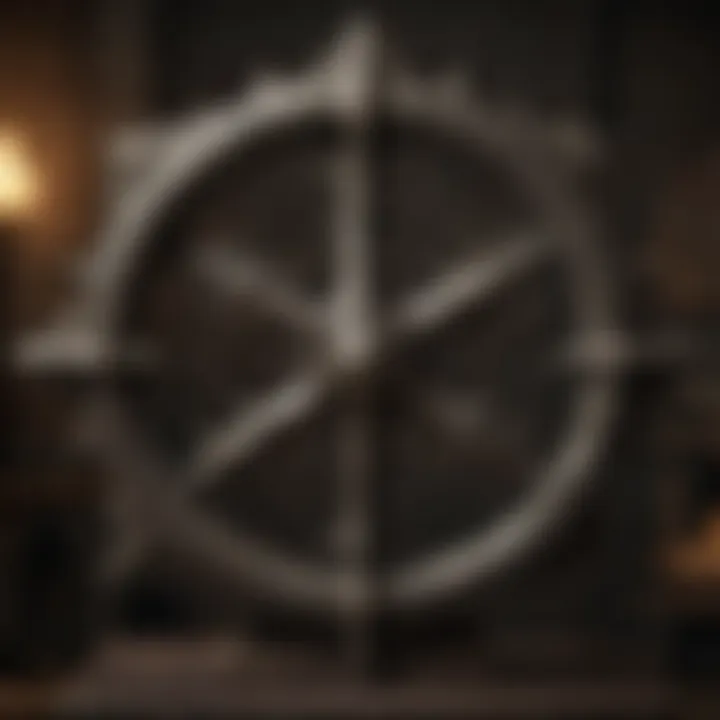
Intro
The landscape of Westeros is rich with diverse beliefs and deities that reflect the complex culture of its inhabitants. From the Faith of the Seven, deeply rooted in the southern lands, to the ancient Old Gods worshipped in the North, and the fiery Lord of Light, these religious systems shape the lives of characters and the events in the series to a great extent. Understanding these deities is essential to grasping not only the motivations of key figures but also the underlying themes that permeate the narrative.
In this exploration, we will dissect key characters, analyze their development, and closely examine the influence of their beliefs on the overarching storyline. This article aims to shed light on how spirituality intertwines with political machinations and personal aspirations within the Game of Thrones universe.
Character Dissections
Key Characters and Their Faiths
- Jon Snow: Raised in the North, Jon Snow's perspective is shaped by the Old Gods. His connection to the Weirwood trees and their spiritual essence reveals his deep-rooted respect for nature and tradition.
- Daenerys Targaryen: Known for her fierce belief in the Lord of Light, Daenerys's journey showcases a constant struggle between power and faith. Her actions often resonate with the divine power she believes she is destined to wield.
- Cersei Lannister: Aligning herself with the Faith of the Seven, Cersei's manipulation of religious institutions highlights the interplay between faith and political authority. Her use of the High Sparrow as a pawn demonstrates her calculating nature.
- Tyrion Lannister: Although skeptical of all religions, Tyrion’s experiences raise questions about belief. His character development often serves as a critique of the fanaticism that other characters exhibit.
Character Development and Influence
The characters’ beliefs evolve throughout the series, reflecting their internal and external conflicts. For instance, Jon’s journey from the Night's Watch to becoming a Stark in his own right is not merely physical but also spiritual. Each encounter with the Old Gods reinforces his identity and his understanding of honor.
In contrast, Daenerys's transformation from a timid girl to a self-proclaimed queen reveals how faith in the Lord of Light empowers her, yet blinds her to the true cost of her ambitions. Similarly, Cersei’s downfall is intricately tied to her overconfidence in her faith, leading her to miscalculate her moves in a game where divine favor fluctuates.
Impact on the Overarching Storyline
The deities of Westeros, while fictional, serve as crucial elements that push the narrative forward. The consequences of worship, belief, and the manipulation of faith play out dramatically across the story. Characters make critical decisions prompted by their divine alignments, which ultimately set the stage for alliances and betrayals that determine the fate of kingdoms.
"Faith can move mountains. It can devastate kingdoms. It's the tool of the clever and the fool alike."
Understanding these characters and their relationships with their gods provides a richer perspective on the intricacies of Game of Thrones, revealing layers that contribute significantly to the themes of power, sacrifice, and humanity.
Lore Explorations
As we proceed, we will delve deeper into the rich history of these religions and their impact on the lore of Westeros. By uncovering connections between the past and present, we can better understand how these belief systems shape the culture and politics of the realm.
Prolusion to the Gods
The exploration of the divine in Westeros serves as a critical backdrop to the events and character developments in Game of Thrones. This section introduces the key religious beliefs that permeate the culture and politics of the realm. Understanding these deities is essential for grasping the motivations behind the characters’ actions and the broader societal structures that influence their lives.
Religious beliefs in Westeros are as diverse as its inhabitants. Each deity comes with a unique narrative, impacting both individual and collective identities. By dissecting these belief systems, one gains insight into why certain communities act in specific ways. Ultimately, this provides a richer understanding of the conflicts and alliances that unfold throughout the series.
Understanding Religious Context in Westeros
In Westeros, religion is not merely a personal sentiment; it shapes laws, traditions, and daily practices. Different regions adhere to varying belief systems, and each has its own rituals and customs. The Faith of the Seven predominates in the South, promoting a structured pantheon, while the Old Gods worshiped in the North embodies a more nature-centric spirituality.
This contrasting religious framework reflects the socio-political landscape of Westeros. The Faith of the Seven acts almost like a state religion, influencing governance and justice. In contrast, the Old Gods provide a more rural and communal spiritual connection, rooted in the ancient practices of the First Men. The Lord of Light, on the other hand, emerges in the narrative with its emphasis on prophecy and divine intervention, highlighting the dynamic and often treacherous nature of faith in this world.
"Faith is a sword, and a shield."
Understanding these various religious contexts enables a reader to decipher character motivations. For instance, characters like Melisandre are driven by their belief in the Lord of Light, leading them to take actions that may appear extreme but are grounded in profound conviction.
The Significance of Belief Systems
Belief systems function as a lens through which the characters and narrative can be fully appreciated. They dictate social structures, influence alliances, and color individual choices. In a world marked by power struggles, faith often serves as both a source of strength and a tool for manipulation.
Several key points underscore the significance of these belief systems:
- Identity: Religion helps define personal and communal identity, fostering unity but also division among groups.
- Culture: Religious practices dictate various cultural norms and festivities, such as wedding rituals or harvest celebrations.
- Motivation: Characters often make fateful decisions driven by their faith, showcasing how belief impacts actions.
- Conflict: Differing belief systems can result in major conflicts, influencing the course of events in Westeros.
Each god or goddess worshiped has implications that extend beyond spirituality; they influence the way people perceive morality, destiny, and leadership. By delving into these divine frameworks, readers can appreciate the intertwining of faith and politics in Game of Thrones, enhancing their overall understanding of the narrative's complexity.
The Faith of the Seven
The Faith of the Seven is the predominant religion in Westeros, shaping cultural norms and power dynamics in significant ways. This belief system influences social structures, personal identities, and political alliances. The Faith teaches that there are seven aspects of divinity, each representing a different facet of life as perceived by followers. This makes it crucial to explore not only the individual aspects but also their collective impact on the fabric of society in Westeros.
Origins and Historical Context
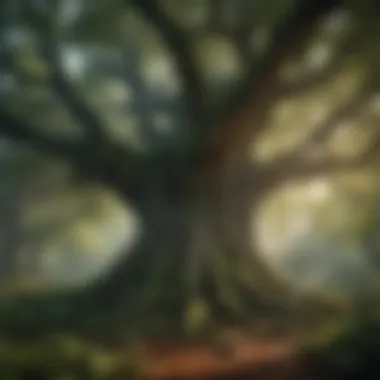
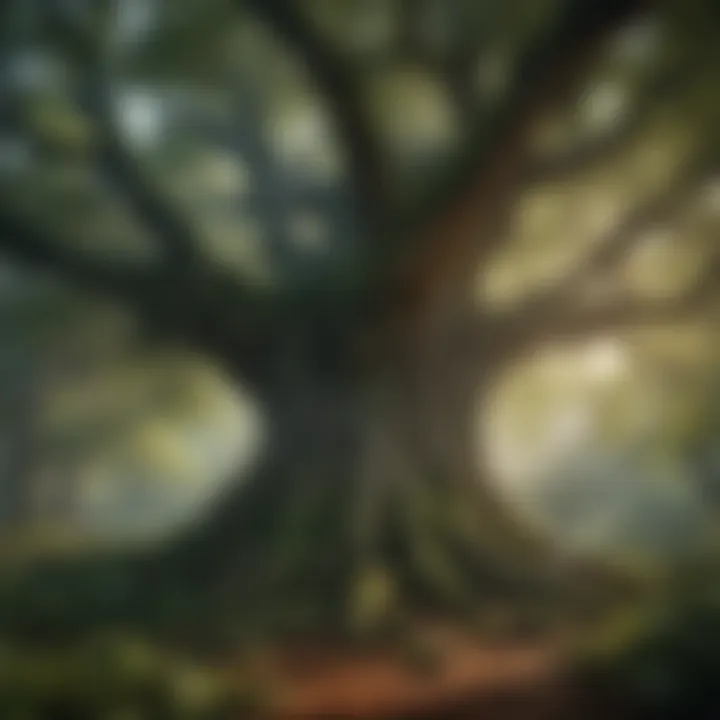
The Faith of the Seven originated in the region of Andalos and was brought to Westeros by the Andals. This historical migration marked a shift in religious belief that replaced the worship of the Old Gods, previously prevalent among the First Men. The Faith emphasizes the importance of morality, social order, and community, differentiating it from the nature-bound Old Gods.
Understanding the historical context of the Faith allows one to appreciate how it spread from the South to the North and became institutionalized. Kings and queens, especially from the Reach and the Stormlands, often aligned themselves with the Faith to legitimize their rule. Over centuries, the Faith became intertwined with political power and authority.
The Seven Faces of God
The Seven Faces of God present a complex framework for followers, each with unique attributes and significance. By understanding these aspects, one can appreciate the diverse interpretations of faith within the realm.
Father
The Father symbolizes authority, wisdom, and just rule. He represents the ideal monarch and serves as a moral compass for leaders in Westeros. This aspect is crucial in a world riddled with betrayal and violence, providing an archetype of fairness and justice. The Father's role encourages qualities such as governance and ethical leadership, making him a vital figure in the Faith of the Seven.
Mother
The Mother embodies compassion, nurturing, and fertility—elements essential for the stability of the society. She reinforces the family unit, promoting love and unity among individuals. By acknowledging her, followers often seek to foster peace in tumultuous times. As a central aspect of the Faith, her character is integral to understanding the dynamics between personal relationships and community cohesion.
Warrior
The Warrior is seen as the embodiment of courage and strength. He is revered for valor in battle and serves as an inspirational figure for soldiers and defenders of the realm. His presence in the Faith serves to motivate individuals to be brave. This aspect is particularly resonant in a world where conflicts are rampant, providing followers with a sense of purpose when facing adversity.
Maiden
The Maiden represents purity and virtue. Through her, the Faith emphasizes ideals of modesty and grace. She serves as a guiding light for the younger, often influencing decisions related to love and interpersonal relationships. This aspect promotes gender roles within the society but also sets a standard for personal conduct.
Craters
The Craters symbolize the toil and craft behind various professions and the importance of labor. They encourage hard work and craftsmanship, advocating the value of diligence in everyday life. While often less emphasized than other aspects, they contribute to the well-roundedness of the Faith, illustrating a balance between spiritual and practical life.
Smith
The Smith stands for creation and craftsmanship. This aspect is essential in the context of warfare and technology, representing the forging of weapons and tools necessary for survival. The Smith is regarded with respect by artisans and builders, highlighting the connection between faith and personal trade.
Stranger
The Stranger encapsulates mystery and death, representing the unknown. This aspect provides followers a way to understand mortality and the inevitability of fate. Embracing the Stranger offers a nuanced view of life and death, making him a complex figure within the Faith. Embracing this aspect is often viewed with apprehension but also acceptance of the cycle of life.
Cultural Influence and Practices
The practices associated with the Faith of the Seven are varied and deeply intertwined with the everyday lives of the folk. Temples and septs serve as community gathering places where rituals, ceremonies, and marriages take place. Festivals honoring the Seven's aspects create a rhythm of life, celebrating their influence on the seasonal changes and the cycles of nature.
The Old Gods of the Forest
The Old Gods of the Forest play a crucial role within the tapestry of beliefs in Westeros. Unlike structured religions, the Old Gods represent nature and its mysteries. Their essence resonates with the ancient traditions of the First Men who inhabited Westeros long before the arrival of the Andals. The Old Gods are less about dogma and more about a deep connection to the land, the essence of the forest, and the spirits within. This primal connection informs the very fabric of life for those who adhere to these beliefs.
Nature and Mysticism
At the heart of the Old Gods' religion is a reverence for nature. The forests, rivers, and mountains are not merely backdrops; they are sacred spaces imbued with spiritual significance. Mysticism permeates the practices and beliefs associated with the Old Gods. It reflects a worldview wherein the natural and spiritual realms intersect, creating an intricate system of interdependence. Followers seek a harmonious relationship with their surroundings, affirming that nature provides both guidance and sustenance.
The Weirwood Trees
Weirwood trees are central to the worship of the Old Gods. Their distinct white bark and blood-red sap symbolize the connection between mortals and the spirit world. These trees serve as sacred sites for worshippers. They are often carved with faces, believed to embody the Old Gods themselves. This symbolism signifies the notion that the forest observes and listens, reinforcing the bond between the divine and the believers.
Symbolism of Weirwood
The symbolism of Weirwood is multifaceted and significant within the narrative of Game of Thrones. Its appearance, with stark white bark and vibrant red sap, evokes a sense of eerie beauty, standing in contrast to the dark forests shrouded in mystery. Weirwoods serve as a reminder of the past, echoing ancient traditions and the collective memory of the First Men. Their role as conduits to the spiritual realm offers a lens through which followers receive guidance or warnings. Thus, Weirwood stands as a pivotal feature within the belief system of the Old Gods, reinforcing their connection to the land and its ancient spirits.
Rituals and Practices
Rituals and practices surrounding the Old Gods are deeply rooted in the natural world. Followers typically gather in sacred groves where Weirwoods reside, engaging in simple yet profound ceremonies. These rituals often include offerings or prayers spoken aloud, asserting their hopes and desires to the divine. The practices lack formal structure, aligning with the themes of adaptability and personal connection. They echo the belief that genuine spirituality comes not from rigid rites but from sincere acts of reverence within one's environment.
Worshippers of the Old Gods
Worshippers of the Old Gods primarily consist of the Northmen, who maintain their traditions and way of life that mirrors the ancient practices of their ancestors. They often see the Old Gods as a guiding presence in their daily lives, affecting their decisions and interactions with nature. The Old Gods are integral to their identity, shaping their cultural norms concerning family, loyalty, and communal responsibility. In their eyes, the Old Gods embody a profound respect for nature and the communal spirit. The belief in these deities fosters a sense of belonging, connecting individuals to their heritage and their land.
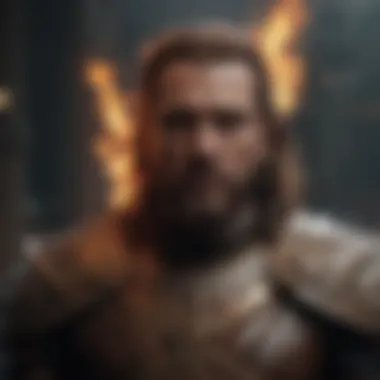
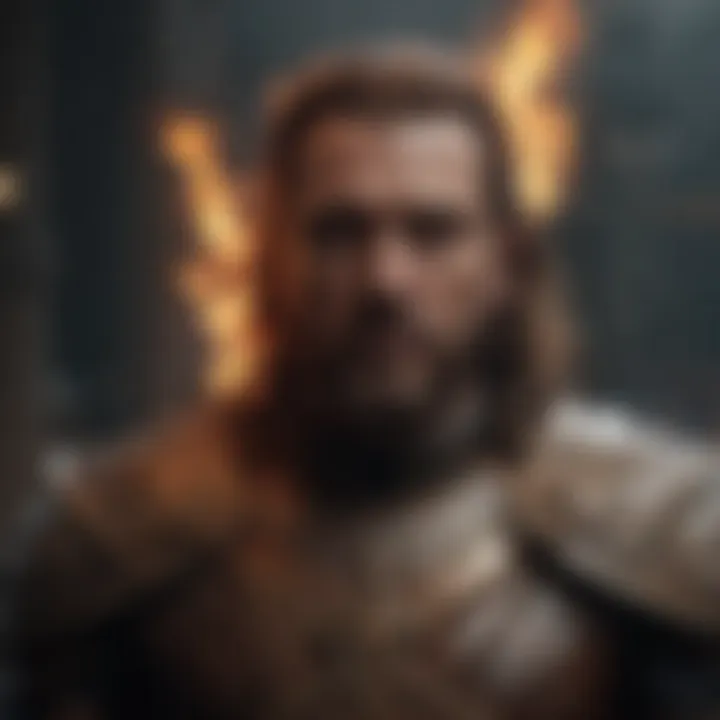
"The old gods of the forest listen to the winds; they know our fears and our hopes. They are part of the world we inhabit."
The Lord of Light
The Lord of Light, also known as R'hllor, stands as one of the central deities in the Game of Thrones universe. His worship is distinct, focusing on the themes of fire, light, and life. The belief system surrounding the Lord of Light is integral to understanding the wider religious context in Westeros. This faith emphasizes the conflict between light and darkness, good and evil, which mirrors the struggles faced by the characters in the story. Furthermore, the rituals and beliefs associated with R'hllor often manipulate the boundaries between life and death, adding depth to character motivations and the unfolding drama.
Beliefs and Ceremonies
The followers of the Lord of Light engage in various ceremonies that emphasize their faith. These rituals often involve fire, representing purification and the divine presence. For example, lighting candles or burning sacrifices is common among adherents. The most notable ceremony is the sacrifice of fire, where offerings are made to gain favor from the Lord. These practices underscore the fervent devotion of followers and their belief in R'hllor's omnipotence over life and death.
Key Figures and Prophecies
Melisandre
Melisandre is a prominent follower of the Lord of Light. Her character is crucial for understanding the complexities of this belief system. One essential aspect of Melisandre is her ability to see visions in the flames, which she interprets as guidance from R'hllor. This key characteristic makes her a powerful figure within the narrative. Melisandre's role emphasizes the importance of faith in influencing actions, such as her intervention in Stannis Baratheon’s campaigns. However, her reliance on shadows and prophecies brings both benefits and risks, leading to morally ambiguous outcomes.
Stannis Baratheon
Stannis Baratheon signifies the intersection between the Lord of Light and the quest for power. As a character, he embodies unwavering belief, which drives many of his decisions. Stannis' key trait is his relentless determination, often motivated by Melisandre’s prophecies. His ambition and connection to R'hllor allows for significant character development, influencing key plot points. However, his adherence can lead to tragic outcomes, showcasing the dangers of blind faith.
Azor Ahai
Azor Ahai is a legendary figure foretold to return and save the world. This prophecy provides a fascinating aspect to the Lord of Light's narrative. Analyzing Azor Ahai reveals the centrality of hope within the storyline. His unique feature is the sword Lightbringer, which represents ultimate sacrifice for the greater good. This adds a layer of depth to the narrative, where faith is not just about worship but the call to action in times of crisis. However, the prophecy can also create tension, with characters interpreting it in different ways, leading to conflict.
The Duality of Light and Shadow
The relationship between light and shadow is a foundational element of the Lord of Light's doctrine. This duality raises questions about morality and the nature of good and evil. Followers of R'hllor see themselves as agents of light, battling against the darkness represented by entities like the White Walkers. However, this perspective often simplifies the complexity of characters' motives. The struggle between light and shadow reflects in various actions of major characters, introducing themes of sacrifice, redemption, and the unpredictability of fate. Ultimately, the Lord of Light serves as a crucial lens through which to analyze the larger metaphysical and ethical dilemmas faced in the story.
The Many-Faced God
The Many-Faced God occupies a unique place in the religious landscape of Westeros. This deity represents the concept of death and the multiple identities that individuals can assume. The numerous faces symbolize the idea that there is no single interpretation of death; rather, it is a complex, multi-faceted experience. The followers of this deity, primarily the Faceless Men, view death not as an end, but as a transformation. This understanding influences their beliefs, practices, and interactions within the broader narrative of Game of Thrones.
The Faceless Men and Their Beliefs
The Faceless Men are the key practitioners of the faith associated with the Many-Faced God. They reside in the House of Black and White in Braavos, where the sacred tenets of their order are rigorously maintained. To them, the act of killing is seen as a service to the Many-Faced God, delivering the souls from this world to the next.
Their beliefs are marked by several core principles:
- Equality in Death: The Faceless Men do not discriminate between social status, wealth or background. Everyone is equal when facing the Many-Faced God.
- Transformation: They believe that death allows individuals to let go of their past selves and be reborn in a different form.
- Service: For the Faceless Men, undertaking an assassination is not merely a job; it is an act of worship, reflecting profound reverence for their deity.
This perspective shapes their worldview, making them both feared and respected. Their skills in disguise, subterfuge, and assassination are a reflection of the Many-Faced God’s attribute of identity fluidity.
Rituals and Death's Role
The rituals surrounding the Many-Faced God are steeped in symbolism and significance. The Faceless Men engage in several practices that underscore their beliefs about death:
- The Last Breath: A critical ritual where the killer must witness the final moments of their victim, affirming the importance of death in their belief system.
- Face Changing: This ritual emphasizes the idea of overcoming one's own identity. The Faceless Men can don the faces of the dead, effectively becoming another person. This practice represents their teachings about the multiplicity of the self, reflecting the notion that all identities ultimately return to one common end: death.
- Prayers and Offerings: Before executing a task, a Faceless Man may offer prayers at the altar of the Many-Faced God, seeking favor and guidance.
“The Many-Faced God is not an end, but a transformation.”
In this way, death is not feared but embraced as a part of the life cycle. The approach to death fosters a chilling yet philosophical understanding of existence, emphasizing that life is filled with roles that one can shed like a costume.
Through the lens of the Many-Faced God, Game of Thrones illustrates how beliefs in divinity can shape human action and influence the unfolding of events. The character arcs intertwined with this faith often highlight themes of sacrifice, identity, and the inevitable nature of death.
The Drowned God
The Drowned God holds a significant place in the pantheon of gods worshipped in the world of Westeros. As the primary deity of the Iron Islands, he embodies the harsh and unforgiving nature of the sea, which shapes the culture and customs of his followers. The Iron Islanders, known for their reaving lifestyle, regard the ocean as a source of both life and death. In this context, the Drowned God represents a paradox, symbolizing both the danger and abundance that the sea provides.
His followers believe that when a drowned man is buried at sea, he is reborn as a servant of the Drowned God. This notion reflects a deep connection to the sea and the belief that it is the ultimate source of power. The worship of this deity extends beyond mere ritual; it permeates the very fabric of Ironborn society.
"The Drowned God teaches us that to be alive is to feel the salt of the sea on our skin and to face its wrath without fear."
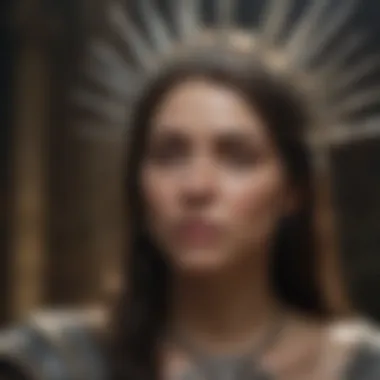
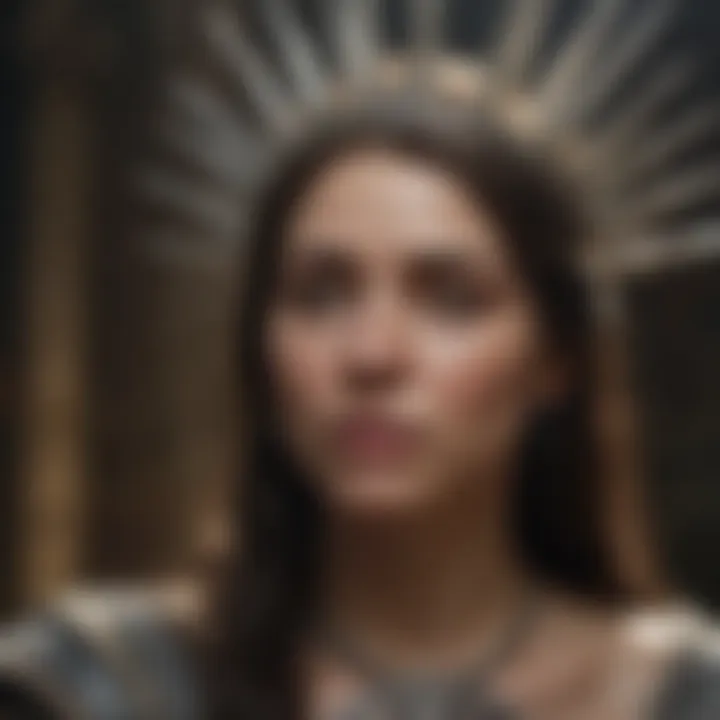
The Culture of the Iron Islands
The Iron Islands have a unique culture that revolves around the worship of the Drowned God. The people of these islands prioritize strength and resilience, characteristics they attribute to their deity. The Ironborn pride themselves on being fierce warriors and skilled sailors. They live by the doctrine of "We Do Not Sow," which emphasizes a life of raiding and plundering rather than farming. This philosophy is deeply intertwined with their religion, which glorifies the act of taking what one desires from the sea and from others.
Rituals dedicated to the Drowned God often include elaborate ceremonies involving water. One notable rite is the drowning ceremony, where a follower is submerged in water, symbolizing their death and rebirth in service to the Drowned God. This act reinforces their belief that the sea can grant them power and honor.
In these rituals, the Ironborn connect with their god while invoking the spirits of their ancestors, showing that their cultural identity is tightly woven with their religious practices. This communion with the Drowned God is not only a means of spiritual expression; it defines how they perceive their place in the world.
The Importance of Sacrifice
Sacrifice plays a vital role in the worship of the Drowned God. The Ironborn believe that offerings to their deity must be made to please him and ensure favorable outcomes in their endeavors at sea. A significant aspect of their belief is the concept of sacrifice as a path to divine favor. Whether it be through the drowning of a prisoner or other offerings, these acts are seen as necessary to maintain a favorable relationship with their god.
The necessity of sacrifice is reflective of the Iron Islands' harsh realities. Life on these islands is marked by survival of the fittest, and the need to appease the Drowned God mirrors the challenges they face. Offering the ultimate sacrifice can be a way to gain strength, protection, or success in raids.
The practice highlights the often brutal nature of Ironborn religion, contrasting it with the more peaceful faiths of Westeros. This underscores the idea that the Drowned God demands respect and loyalty, and failure to adhere to these traditions can lead to dire consequences. In this way, the belief in the Drowned God not only shapes individual actions but also the collective identity of the Ironborn as a whole.
Interactions between the Gods and Characters
The interactions between the gods and the characters in Game of Thrones play a crucial role in shaping the narrative. These divine influences often reflect and amplify the motivations, struggles, and ultimate destinies of the key figures in Westeros. Various characters engage with their respective deities, affecting choices made in critical moments. The significance of faith offers insight into their actions and the moral implications of their decisions throughout the series. Understanding these interactions helps reveal complex layers of character motivations and the larger forces at work in the realm.
Faith and Motivation
Faith serves as a driving force behind many characters' actions. For instance, Stannis Baratheon is deeply influenced by his belief in the Lord of Light, which shapes both his strategic decisions and moral compass. The conviction that he is destined to be a great ruler leads him to make drastic choices that often isolate him from others. Similarly, characters like Melisandre and Theon Greyjoy exhibit faith that guides their motivations.
- Stannis Baratheon: Believes he is the chosen one of the Lord of Light.
- Melisandre: Acts as a prophet, interpreting visions she receives through her faith.
- Theon Greyjoy: Struggles with his loyalty to the Drowned God and the expectations placed upon him.
Such motivations create a compelling narrative about the struggle between faith and doubt, showcasing how belief can lead to moments of heroism or tragedy.
Influence on Major Events
The influence of the gods manifests prominently during key events within the series. Decisions inspired by divine guidance often lead to unexpected outcomes.
- The Red Wedding: The betrayal signifies how the will of the gods impacts human affairs, ultimately leading to catastrophic results for the Stark family.
- The Battle of Blackwater: Stannis’s defeat can be partly attributed to the unforeseen divine intervention.
These events showcase how characters believe they act under divine influence, whether it be in victory or defeat. Understanding these influences emphasizes the precarious nature of human existence in Westeros, where divine will intertwines with mortal ambition.
Conflicts Stemming from Beliefs
Conflicts often arise from differing belief systems within Game of Thrones. The clash between the Faith of the Seven and the Old Gods creates friction among the people of Westeros. Characters face moral dilemmas, where their faith creates tensions.
- Cersei Lannister: Spurns the Faith of the Seven in favor of political power, illustrating the conflict between secular and divine authorities.
- Jon Snow: Struggles to reconcile his Stark heritage with the Old Gods’ influence, leading to conflicts with those around him.
These conflicts illustrate how deeply held beliefs can lead to division among characters, often resulting in warfare or schisms between factions. This dynamic is vital in understanding the broader themes of loyalty, power, and the impact of faith in the turbulent world of Westeros.
Faith and beliefs in Game of Thrones serve as a double-edged sword, providing motivation and instigating conflict, often becoming a catalyst for major events within the story.
Through analyzing these interactions, readers gain insight into how faith influences character development, propels the narrative forward, and eventually shapes the fate of worlds.
End: The Role of Divinity in the Saga
The exploration of divinity in Game of Thrones highlights how integral these belief systems are to the narrative. Each deity represents not just a set of rituals but the cultural and moral frameworks that direct characters' motivations and actions. This connection helps to deepen the complex tapestry of the story, showing that choices are influenced by faith and the nature of the gods. Divine influence in Westeros manifests through rituals, prophecies, and the characters’ internal struggles with belief.
Summarizing the Impact of the Gods
The impact of gods in Game of Thrones is profound. They shape political dynamics, personal relationships, and existential questions. Characters like Melisandre wield the power of their faith to justify actions that, while ruthless, align with their understanding of divine will. The struggle between light and shadow, as seen with the Lord of Light, presents a duality that mirrors the choices facing many characters throughout the series.
The Faith of the Seven influences various regions differently. Its teachings and practices establish social norms, which characters frequently navigate, especially in matters of honor and loyalty. The Old Gods connect with the ancient ways of life, emphasizing a respect for nature and past traditions, which can be seen in the beliefs of the North.
The contrast of beliefs enables the series to depict a world filled with moral ambiguity. Each god offers a unique perspective, challenging characters to reflect on their motives. This thematic depth allows audiences to engage with Game of Thrones on multiple levels, from the epic battles to the intimate moments driven by faith.
Future Implications for the Story
As the series unfolds, the implications of divinity are likely to evolve. If Game of Thrones continues to explore the potency of divine interactions, audiences can expect deeper character arcs and unforeseen conflicts. Deities may play a central role in infusing new layers of meaning, particularly as prophecies come to fruition and characters grapple with their faith.
Particularly, the re-emergence of key figures such as Jon Snow raises questions about lineage and destiny, entwining personal identity with divine purpose. As factions clash, the followers of various gods may reshape alliances, influencing the broader socio-political landscape of Westeros more dramatically.
Future implications may also consider the consequences of faith on community dynamics. The era of suffering, as projected in certain prophecies, could see a renaissance of spirituality throughout Westeros. These elements will undoubtedly enrich the narrative, making religion not just background but a catalyst for significant change in the saga.
Ultimately, the interaction between characters and deities holds a mirror to the power struggles of humanity, leaving audiences to ponder their own interpretations of divinity and its role in shaping destinies.



